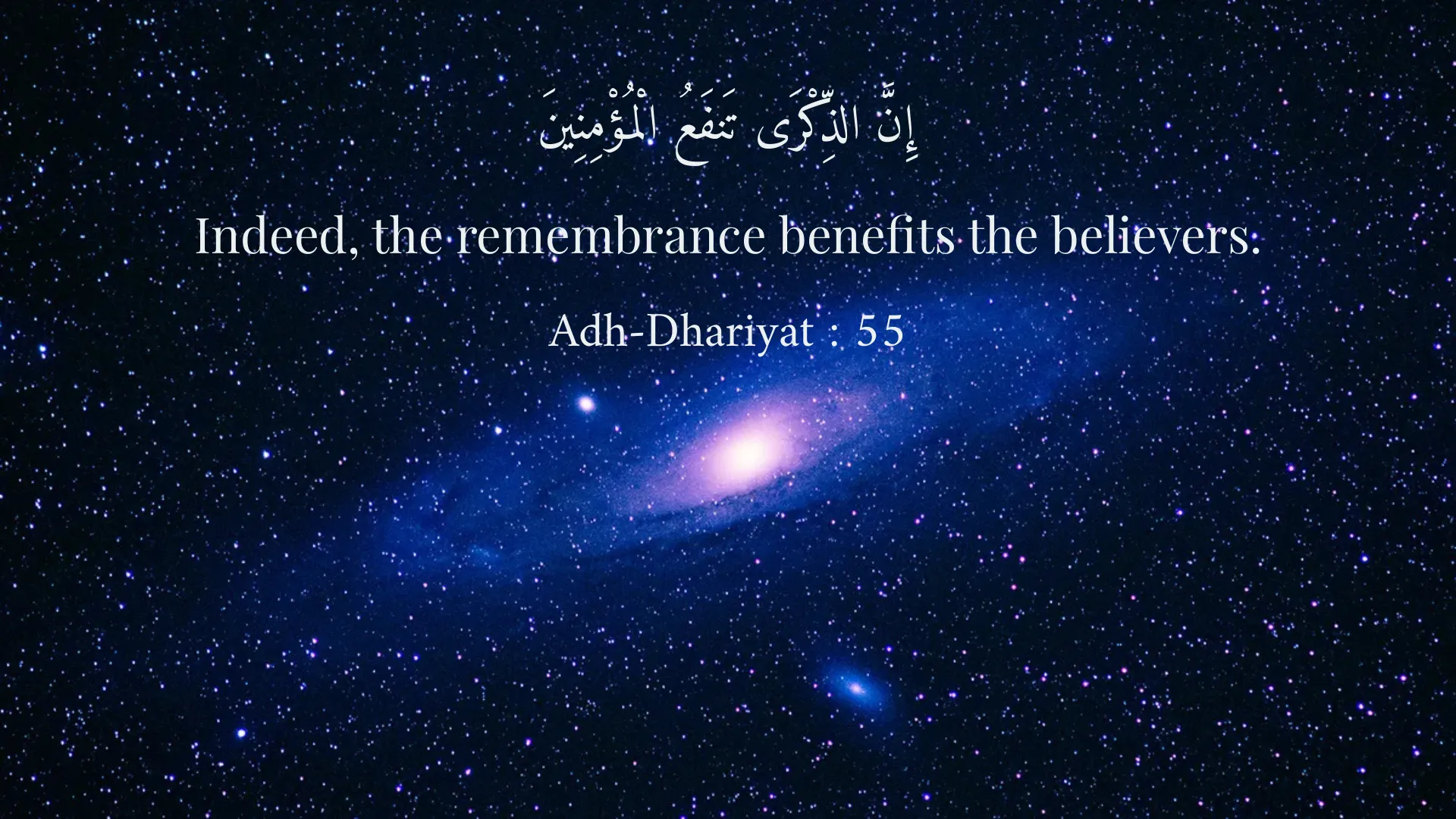Quranic Answer

In the fast-paced world we live in today, people often seek solace and peace amidst the chaos of everyday life. One profound way to attain this tranquility is through the remembrance of God, particularly at night. The act of remembering God at night holds a special significance in the Islamic faith, as it is considered a time for reflection, worship, and a deeper connection with the Divine. Through the study of various verses in the Holy Quran, we can discover the rich meanings and profound benefits of this practice, which can lead to a more peaceful heart and soul. The Holy Quran emphasizes the importance of remembrance, stating: 'Indeed, the remembrance benefits the believers' (Surah Adh-Dhariyat, 55). This verse establishes a clear link between faith and the act of remembering God. The term “remembering” or “Dhikr”, is not merely a ritual but a state of mind that fosters awareness of God’s presence in our lives. By engaging in this practice at night, believers can set aside their daily distractions and focus solely on their relationship with Allah. Nighttime is inherently different from the hustle and bustle of the day. The darkness surrounding us creates a serene atmosphere that encourages contemplation and introspection. It is during these quiet hours that we are most inclined to engage in thoughtful reflection. Through the recitation of the Quran and remembrance of God’s names, we can immerse ourselves in His divine words, pondering their meanings, and allowing them to resonate within our hearts and minds. Moreover, Allah emphasizes the importance of prayer at night, as stated in Surah Al-Isra, verse 79: 'And during the night, pray with it as additional (worship) for you.' This specific command underscores the importance of night prayers, or “Tahajjud”, as an opportunity for believers to deepen their connection with God. The Prophet Muhammad (peace be upon him) frequently engaged in night prayers, utilizing this time to communicate intimately with Allah. This practice serves as a reminder that night is not just a time for rest but a sacred opportunity for offering gratitude and seeking forgiveness. It is a moment to express our vulnerabilities and seek Allah’s assistance in overcoming the trials and tribulations we face in our lives. Furthermore, the act of remembering God during the night also acts as a means to alleviate daily stress and worries. The pressures of life, including work, relationships, and societal expectations, can become overwhelming. Engaging in Dhikr at night provides a refuge from these concerns, soothing our hearts and lifting our burdens. When we recite the Quran, immersing ourselves in its verses, it becomes a source of healing. The divine words serve as reminders of God's mercy, guidance, and overarching plan for our lives. In practice, the time after the obligatory Isha prayer and before the Fajr prayer serves as an ideal window for night worship. Believers can dedicate this time to reciting Quranic verses, performing additional prayers, or engaging in supplication. These actions not only draw us closer to Allah but also serve to enhance our overall faith and spirituality. As we reflect on our lives, we become more mindful of our actions and more committed to living a life aligned with our beliefs. Engaging in Dhikr at night inherently encourages greater piety in our daily lives. When we establish a routine of nightly worship, it reinforces our consciousness of Allah throughout the day. As we navigate through life, the lessons learned during night reflection and remembrance stay with us, influencing our decisions and interactions. This leads to a continuous cycle of piety, mindfulness, and spiritual growth. The practice of remembering God at night is not just spiritual; it carries psychological benefits too. Studies have shown that individuals who engage in mindfulness practices, such as meditation and prayer, report higher levels of well-being and lower levels of anxiety and stress. The calmness that emerges from slowing down and focusing on the Divine can drastically alter our mental states. In Islam, this tranquility is deeply rooted in faith, as it encourages believers to rely on God during difficult times, thus reducing fear and anxiety. Moreover, the communal aspect of night worship also plays a crucial role in strengthening the bonds among believers. Engaging in Taraweeh prayers during the holy month of Ramadan, for instance, fosters a sense of community as families and friends come together to worship. This collective remembrance of God facilitates connections between individuals, allowing them to support and uplift one another in their spiritual journeys. In conclusion, the practice of remembering God at night offers countless benefits for believers seeking peace, solace, and spiritual growth. Through the recitation of the Quran, performance of night prayers, and deep reflections, we develop a profound connection with Allah that transcends the challenges of daily life. The tranquility found during these sacred moments not only eases our souls but also enhances our awareness of God throughout our lives, cultivating a spirit of piety and mindfulness. As believers, we should strive to incorporate this practice into our nightly routines, recognizing the immense blessings and mercies that come from cultivating a relationship with our Creator, especially during the peaceful hours of the night.
Related Verses
إِنَّ الذِّكْرَى تَنفَعُ الْمُؤْمِنِينَ
Indeed, the remembrance benefits the believers.
Adh-Dhariyat : 55
وَمِنَ اللَّيْلِ فَتَهَجَّدْ بِهِ نَافِلَةً لَكَ
And during the night, pray with it as additional (worship) for you.
Al-Isra : 79
Short Story
One day, a friend of mine was sitting in the yard on a cold night, staring at the starry sky. He felt troubled by various issues in his life. Remembering the verses of the Quran, he began to engage in the remembrance of God. With each glance at the sky, he felt more clarity and peace wash over him, and tears flowed in remembrance of God's love. How well he understood that the daily noise needed to be set aside for moments with God, allowing him to experience true serenity in his heart.